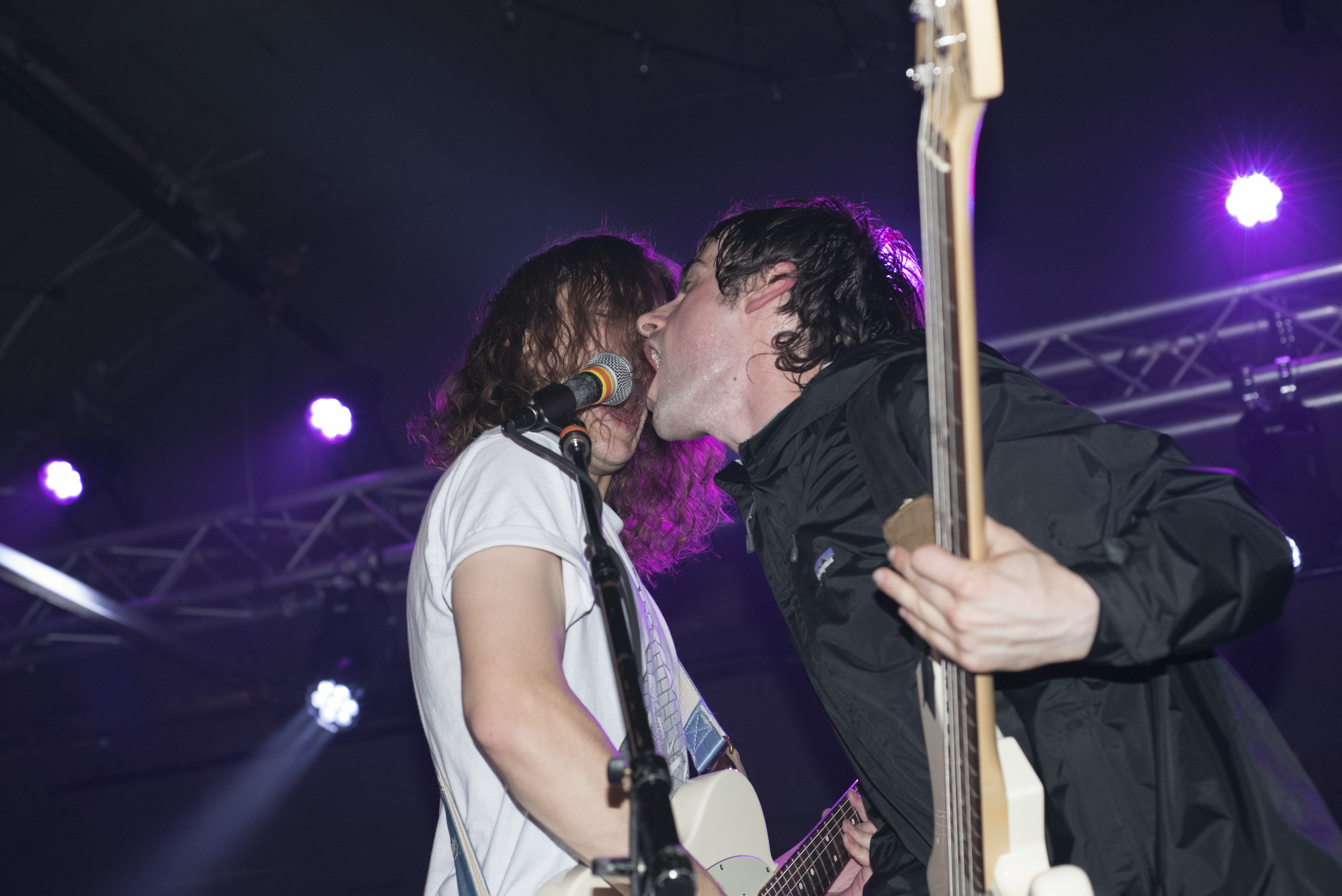
The garage rock scene is as strong as ever these days, with countless new lo-fi bands sprouting up from hotspots like Chicago and L.A. Sometimes however you need a break from fuzzy guitars and distorted vocals. Sometimes, you just want to sing along to the classic rock station, pounding out drum solos on your steering wheel, and shredding air guitar at a red light. Better yet, you can have your cake and eat it too with Louisville rockers White Reaper.
Officially formed in 2014, White Reaper began like your typical garage rock band, releasing a demo in 2012, followed by an eponymous EP in 2014. After a few years of playing their hometown circuit, the band released their first full-length album in 2015, White Reaper Does It Again, then hit the road with up-and-coming act Twin Peaks. And while at this point their material was fun and fast, with a few genuinely stand-out songs like “Wolf Trap Hotel,” there was clearly more to be discovered beneath the lo-fi production. After taking a year off to polish their act, White Reaper proved they were more than just another garage rock band with the release of their second studio album, The World’s Best American Band. Departing from the lo-fi sound of their prior albums, White Reaper indulges in their love for classic rock, giving the genre a modern spin in the most refreshing rock album of the year.
On Thursday, White Reaper stopped in Boston to play Brighton Music Hall, along with Chicago rockers Post Animal and Boston’s own Rival Island. Taking the stage at 8:00 pm, Rival Island fit in well with White Reaper’s classic rock aesthetic, dressed in denim and the drummer repping a Billy Idol tee. After a short but well-received 30 minute set, the hometown band passed the microphone over to Post Animal.
Like White Reaper, Post Animal began their career as a standard garage rock band, but are now pushing the boundaries of the genre. While still embracing a lo-fi sound, Post Animal also encompasses a heavier tone, like a mix between prog-rock giants Dream Theater and the psychedelic sound of King Gizzard and the Lizard Wizard. With no apparent written set list on the stage, Post Animal played a fun-filled jam session set filled with headbanging and impromptu riffs. And by the end of their set, the band walked off stage to a roar of approval from the crowd, concluding a performance most bands would struggle to follow–––but for the “World’s Best,” it was no problem at all.
At 9:45 pm, the house lights flashed and dimmed. Techno music blared over the speakers, and the lights turned a foreboding red as White Reaper bounded onto the stage. Dancing in the dark, the band pumped up the crowd with a long intro track before picking up their instruments. There were no pyrotechnics, but a ring of flames or cannon of fireworks wouldn’t have been out of place, as White Reaper instantly transformed the small venue into an arena. After a strong opening string of songs from their earlier material, including ripper “Wolf Trap Hotel,” the band broke into their new material with “Little Silver Cross.” Working the small stage like a football field, bass player Sam Wilkerson dashed between his amp and the edge of the stage without losing a beat. Likewise, keyboard player Ryan Hater jumped around his instrument and headbanged in front of a tall stack of amps, while vocalist Tony Esposito took center stage, windmilling his guitar in a power stance like an 80s metal rock star. Though not tame by any means, the slightly less charismatic drummer Nick Wilkerson and guitarist Hunter Thompson helped to round out the dynamic of the band with their cool and collected musicianship.
In between power chords and solos, White Reaper passed around a bottle of Patron, gulping back mouthfuls like water. Then, halfway through the set, Wilkerson stepped up to the microphone to ask the crowd a favor. Over the past few weeks he’d made a habit of diving into the crowd after the last song to do a shot from the bar, but with two bars in sight That night, he wanted to do a shot from both before being surfed back to the stage. With the plan now understood, he returned to his bass and the show went on. As the night approached an end, one key track remained to be played–––“Judy French.” So when it finally came time to break out their hit single, Esposito helped the already wild crowd to turn it up another notch, cheekily arranging them into a “frolicking” circle mosh. After that, all hell broke loose, and the band soon retired from the stage, leaving the crowd gleefully waiting for Wilkerson to return for his ambitious double shot. But when White Reaper walked back on, Thompson announced that there’d been a change of plans. There was going to be a race.
Instead of a double shot, Wilkerson would go head-to-head with Esposito, with each member being carried to one of the two bars for a shot and then brought back to the stage in what would indubitably be remembered as the race of the century. Despite careful planning and a seemingly even matchup, Wilkerson made short work of Esposito, catching him off guard with an early jump into the crowd, bringing the night to a close. And although these stage antics appealed to the crowd and fit in well with the band’s aesthetic, it was the music that truly left a lasting impression. Combining these theatrics with the sounds of their early lo-fi work and their new, poppier and more polished sound, White Reaper stayed true to their roots while fearlessly exploring rock’s more glamorous side.
